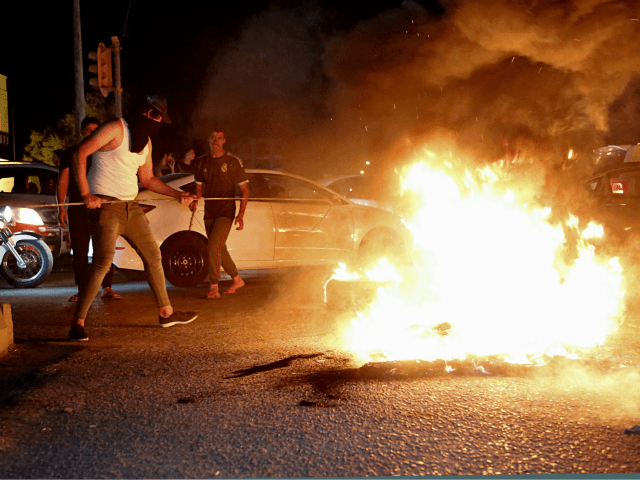BAGHDAD (AP) — Iraqis demanding better public services and jobs took to the streets again on Sunday in the southern oil-rich province of Basra, as authorities put security forces on high alert and blocked internet on the sixth day of protests in the country’s Shiite heartland.
The protests come at a delicate period as ordinary Iraqis and political parties await the final results of a recount of the ballots from May’s national elections before a new government can be formed. The elections, the fourth since the U.S.-led invasion that toppled Saddam Hussein, saw the lowest touronaut in 15 years and were married with allegations of fraud and irregularities.
Thousands of protesters gathered outside the local government building and closed the roads leading to major oil fields north and west of the city of Basra on Sunday, activist Laith Hussein told The Associated Press over the phone.
Security forces guarding the local government building opened fire, causing some protesters to scatter away, he added.
Elsewhere in Basra, protesters also forced authorities to close the vital Um Qasr port on the Persian Gulf, and planned to march to the border crossings with Kuwait and Iran, he said.
On Saturday night, a group of protesters tried to break into the headquarters of Badr Organization, one of the powerful Shiite parties, which also has an armed wing, but the guards opened fire, wounding some of the protesters, Hussein said.
He could not confirm whether there were fatalities from either of the incidents. Health and police officials were not immediately available to comment.
There were also similar protests on Saturday in Baghdad. Hundreds poured into Baghdad’s Tahrir Square and the eastern Shiite district of Sadr City. Some protesters set tires on fire and tried to break into the Badr Organization’s office in Sadr City, prompting guards to open fire. No casualties were reported.
Protests in Basra boiled over on Tuesday, when security forces opened fire, killing one person and wounding five people, and spread to other provinces within days. Angry mobs broke into local government buildings and burned the offices of some political parties in some cities.
In Najaf, the protesters broke into Iraq’s second-busiest airport, causing damages to the passenger terminal and delaying fights.
In a bid to contain the protests, Iraqi Prime Minister Haider al-Abadi dispatched a six-minister committee headed by the oil minister, Jabar Ali al-Luaibi. The committee promised jobs for those living in the areas around the oil fields and announced allocations for urgent projects, mainly for water.
On Friday, al-Abadi flew to Basra from the NATO summit in Brussels to try to diffuse the unrest. He also asked the state-run Basra Oil Company to provide more jobs to locals and announced urgent allocations.
But that didn’t assuage the protesters.
“These announcements are just anesthetization to the residents of Basra,” Hussein, the activist, said. “Every year, they give the same promises, and nothing happened on the ground.”
The only solution is “to replace the current faces that represent the parties that failed to develop Basra by new faces from new political parties from Basra itself,” he also said.
Like others, Hussein demanded Baghdad give more powers to a new, local Basra government.
The demonstrations were given a boost after a representative of the Shiite community’s spiritual leader, the Grand Ayatollah Ali al-Sistani, offered his solidarity with the protesters during Friday sermon, but called for peaceful demonstrations.
Basra is Iraq’s second-largest province and home to about 70 percent of the country’s proven oil reserves of 153.1 billion barrels. It is located on the Persian Gulf bordering Kuwait and Iran, and is Iraq’s only hub for all oil exports nowadays to the international market.

COMMENTS
Please let us know if you're having issues with commenting.